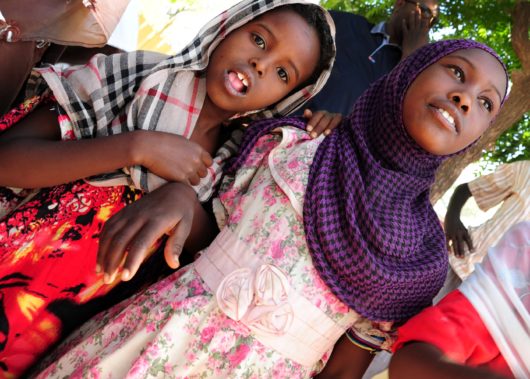Efforts to Improve Girls’ Education in Djibouti

Educating young people is one of the first steps to decreasing extreme poverty in many underdeveloped countries of the world. In Djibouti, this fact has been recognized and progress is being made to educate children. The special attention is on educating young girls in the country.
Statistics of Education in Djibouti
In four short years, between 2002 and 2006, net school enrollment in Djibouti rose from 43 percent to 66 percent. This was viewed as amazing progress at the time, but it was still unsatisfactory. In order to meet the standards of the Millenium Development Goals, Djibouti needed to lessen the statistic that showed that one of three children is not attending school. The final goal of the government is to get all its boys and girls into school.
Within the statistic mentioned above, the majority of the children not attending school were girls. To fix this, the focus was on bettering girls’ education in the country. Two organizations that have done an amazing job on girls education in Djibouti are UNICEF and Global Partnership for Education Efforts.
UNICEF Efforts
UNICEF discovered, without any surprise, that the main reasons why girls are not enrolled in schools were directly correlated with poverty and social problems. These reasons included the fact that most of the girls out of school were orphans, homeless and neglected. Other factors that affected this statistic were health problems and disabilities.
UNICEF implemented the Basic Education and Gender Equality Program which was composed of three components: equal access to educational facilities, quality of primary education and non-formal education. Each component had subtopics within them.
The most important and impactful ones were social mobilization efforts, creating mass media educational systems, promoting child-friendly school systems, increasing teacher training, increasing women involvement in teaching, better access for children from rural areas and the development of alternative teaching methods.
Global Partnership for Education Efforts
The Global Partnership for Education Efforts partnered with the Djibouti government for the first time in 2006. Their education sector plan for the country is a nine-year program, planned from 2010 to 2019.
This organization has very similar goals as UNICEF, which makes sense since these are partner programs. However, it is still important that yet another organization pushes hard for equal education rights in the country.
The program has six main objectives. The first is developing a pre-school system that connects rural, urban, private and public sectors so that everyone receives the same education across the board. For primary education, their second goal is to have 100 percent of eligible children enrolled by 2019. They have settled for 79 percent for secondary education, understanding the need to work in some situations.
The third goal is to eliminate the gender disparity. The organization understands the importance of bridging the gap between genders so that girls can become future leaders, teachers and lawmakers who will continue to fight for equal rights for all citizens in Djibouti. This goal is the most important one from the standpoint of improving the girls’ education in Djibouti. The remaining goals all have to do with reform on every level that interacts with the education system in Djibouti. Global Partnership for Education has many strategies that they are using to reach these goals.
The government of Djibouti has been aware of the need to increase school enrollment of girls since the early 21st century. Since then, they have been working with organizations like UNICEF and Global Partnership to fix disparities.
Being aware and making moves to fix things are some of the most important steps to fixing a problem, especially one concerning poverty and education rights. The fight for increasing girls’ education in Djibouti is not over yet.
Global Partnership still regularly updates their progress on the matter, with their most recent article being from October 2018. Keeping hope alive and working together matters most in these harsh times.
– Miranda Garbaciak
Photo: Flickr
